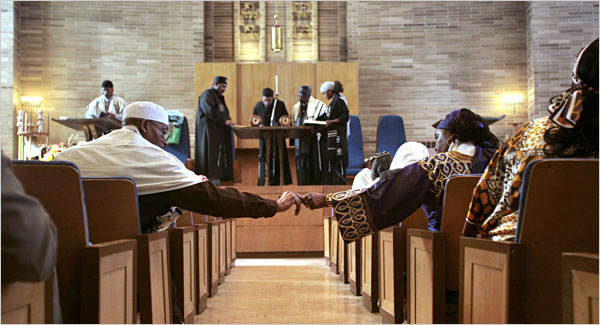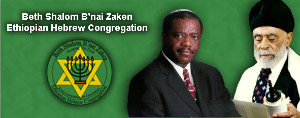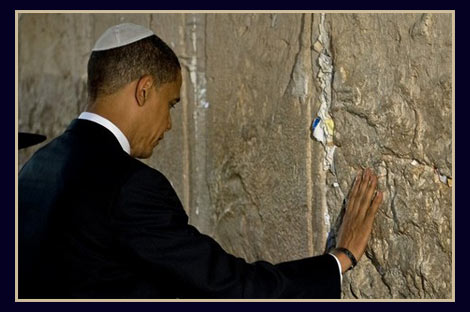an earthy democratic religion takes root in American soil
 Martin Luther King, Jr. |
Our Biblical Gospel Roots |
America's Gospel Heritage
 Martin Luther King, Jr. |
Our Biblical Gospel Roots |
| Martin Marty writes: Most casual Americans bless or curse Puritanism as the source of what is right or wrong with themselves, their psyches, and their social world. Fewer of them know what to make of evangelicalism, a highly transformed successor to Puritanism. In the nineteenth century this religion of the heart, based on a faith that took root in revivals, centered in the love of Jesus Christ, and issued in organizations and personal endeavors for the world's redemption or human charity, swept Protestant America (when America was almost wholly Protestant). The latter American past cannot be understood without a comprehension of evangelicalism, yet for years many have tried to make their way past it or around it. [Martin E. Marty, in Foreward to Sernett's Black Religion and American Evangelicalism p xv] |
... There is very little doubt that there is nothing more valuable, memorable, weighty, or commendable about the Puritans than their religion -- and in that area they were almost solely influenced by the Hebrew Bible.Quoting the German reformer Martin Luther (p 49):
Without this language [Hebrew] there can be no understanding of the Scriptures . . . . it is rightly said that the Hebrews drink from the fountains, the Greeks from the streams, and the Latins from the pools.On the Judaic Spirit, Katsh cites Frank H. Ridgely (P 77)
The priceless jewel of Hebrew religious development, a pure ethical idealism of the prophets, was not lost to the religious experience of Israel, but was rather preserved for her and for all ages and for all races, through the ritual legalism, of the priests. The world's richest treasures of religious and moral truths are the gifts and fruitage of Jewish ethical idealism . (Ridgely, Jewish Ethical Idealism. Boston: Gorham Press, 1918. p 88)(P 77):
The knowledge of the Hebrew language enabled the Puritans to breathe more deeply of the spirit and meaning of the Old Testament. It is, in fact, almost axiomatic that in every period of Christian reform, the effort to understand the Biblical word in its original doctrines, even as the shift of emphasis from the New Testament to the OLD usually results in a concomitant emphasis on the spirit and ideals contained specifically in the Hebrew Scriptures. . . . This peculiarly Hebraic type of idealism, as the Puritans chose to interpret and apply it, not only dominated their theology but permeated the pattern of their daily life. It helped them to discipline their minds; it fortified their will; it confirmed in divine terms the principles for which they stood; and these were the factors which enabled them to survive. Perhaps as much as any more practical factor, this belief in their divinely inspired mission equipped the Puritans to triumph over the difficulties which had defeated previous colonists. It gave them the hardihood and tenacity of purpose, the will and courage necessary to withstand the rigors of life in the wilderness that was America during the early years of the seventeenth century.(P 79)
Thus, according to the historian Fiske, there was in the Massachusetts Commonwealth "the same ethical impulse which animates the glowing pages of the prophets and which has given to the history and literature of Israel their commanding influence in the world."(P 79) As A.A. Neuman contends,
Puritanism was, in essence, the rebirth of the Hebrew Spirit in the Christian conscience. It was the Hebrew religious genius come to life to wage battle for God and soul-freedom, once more to impress upon the world the sovereignty of God and the holiness of life.Indeed, as Israel Drapkin notes the question was more than America alone:
The Ten Commandments are the moral and legal foundations of Western Civilization (itself).(P 91)
In the Covenant-doctrine, Man is seen to be created from nothing. He starts out merely as dust, with no claims whatever to any specially assigned place in a cosmic chain. In this sense, the Covenant preserves the sense of an enormous, indeed apparently unbridgeable distance between an omnipotent Creator and His Human creation. On the other hand, impotent and without claim as he is, man is miraculously elected to be the partner of Deity in an historical enterprise. His life is invested not merely with purpose but with divine purpose; and within the categories of Covenant, he and his divine Creator enter into mutual obligations to one another. This is the audacious claim of the Hebrew religion; to the Greeks it should have seemed an example of incredible hubris.(Fisch, Jerusalem and Albion. London: Routledge & Keegan Paul, 1964. p 107)(P 92):
Although this [Covenant doctrine] was early developed by Christianity in some degree, it was not developed very fully until the time of the Reformation, and it was only completely realized by the Puritans, who accepted the concept in toto as the bedrock of their society and its legal structure. The most serious implication of this concept of covenant was its exaction of righteousness and moral behavior; there was a felt urgency to act, and to act along the proper ethical and moral lines as described in the Lord's own dictates. And since the boundaries between the moral behavior of the individual and that of the body politic were scarcely perceptible, the ethical laws regulating the activity of the community as a whole were often virtually indistinguishable from those pertaining to the individual.(P 93):
Since the psychological impetus of [New England Puritanism's] whole enterprise was the conviction that they had in fact entered a new Canaan, under the guidance of the Lord Himself and the leadership of His appointed spokesmen, the Puritans felt themselves bound by the express dictates of their divine mentor, and under particular obligation to conduct themselves faultlessly in every area of human conduct. Consequently, as might have been expected, the resultant Puritan legislation was dominated by this strict construction of the Biblical moral imperatives; their conception of ethics, of integrity, honesty, industry, being wholly determined by their severe and unequivocal reading of the Scriptural text. [But alas, they often exceeded the letter, substituting their own take, without biblical basis.]
| It is the descendants of the Puritans who have been their worst critics. And who, truth be told, has a better right than those who have been most affected, most impacted? Often it is the so-called outsiders to a tradition who are able to see, even before the offspring, the achievements -- the positives. Tocqueville overflowed with praise for the Puritan achievement in North America. Certainly out of honesty he revealed the flaws, the tendency toward a middling spirit, a cultural mediocrity, too much "sameness" and groupthink. But Tocqueville saw the awesome political and economic potential of this innovation of New England's, biblically based, committed to literacy and inclusion and the world's first successful democratic experiment. And their influence goes on. Father William C. Spohn takes note of the Puritan heritage that even still permeates the American religious culture, in a largely positive way, he believes. "The American theological tradition has its roots in the Puritan experiment." Spohn delves into the interplay between the enthusiasm of the heart, and the power of reason - as seen through the thought and ministry of Jonathan Edwards in particular. |
[Roger Williams] believed that it was incumbent upon the state to abstain from interference in religious affairs, not because religion was trivial or unrelated to the needs of society, but rather because its unique and supremely important truths and verities could be revealed and spread among men only in an atmosphere of liberty and freedom of conscience. Williams anticipated that this could not but result in a certain degree of error, but was confident that " ' tis Light alone, even Light from the bright and shining Summe of Righteousness, which is able, in the soules and consciences of men to dispell and scatter such fogges and darknesse." [quoting Roger Williams' The Bloudy Tenent of Persecution, London: 1644](P109 ):
... throughout the period of colonization in New England, the Mosaic rulings and Biblical laws were considered the supreme authority in any question requiring the citation of a precedent. These Biblical injunctions were willingly and reverently accepted as the Word of God, so that there can be no question here of the imposition of a foreign code of laws; rather, the practice only reflects the fervent desire of the colonists to abide by these Biblical precepts. For therein, the colonists felt, was to be found the model of society as they envisioned it. From these initial efforts Hebraic laws and principles extended and prevailed throughout the colonies, and, still later, in the national system of American constitutional law.on the long-term impact of Hebrew on English and American literature (P142 ):
"primarily through the agency of Scriptures." Biblical precepts, injunctions, nobility of thought, and unmatched eloquence are the source of much that is great in English and American literature. If one wishes to study English literature from its beginnings, there is little doubt that an intimate acquaintance with the Bible is an indispensable preparation. The very origins of English literary efforts are intertwined with the influence of the Bible and Biblical lore.(Hebrew Impact on Civilization, p 9), Katsh writes:
Were one to eliminate from English literature whatever it owes to the Bible and Hebraic writings, the remainder would be "barely recognizable" [quoting Cecil Roth]. The extent and influence of English literature is almost inestimable.... Where the English have gone they have taken their literature. As a result ". . . could the Bible be erased from the consciousness of those peoples, it would forfeit well-nigh half of its influence in the world." [quoting Richard Garnett](Hebrew Impact on Civilization, p 9), Katsh writes:
Think what we will about their narrowness and bigotry, there is probably nothing more valuable, memorable, weighty or even commendable about the Puritans than their religion, and in that they were almost solely influenced by the Old Testament. "The whole Old Testament is vital and commanding with examples of the Hebrew spirit. . . . They with their more virile temper, their experience of hardship, and their secluded homes in the wilderness, saw in the ancient Testament not history only, theology or praise, but the glory of man reflecting and celebrating the glory of God. It was Scripture in life which smote and stirred their strong emotion. Not merely as to Deborah under the palm-tree, or to Ezekiel by the river Chebar, was the majesty of the Eternal manifest to them. The whole Hebrew economy bore its radiance, and declared its effect; an economy stern, sublime, working for freedom because binding to God; training men to be pious for the world with its lusts, that they might be champions for the kingdom unseen. This was the lambent cloud of glory which filled all Puritan temples when the ancient Scriptures were opened within them. [quoting R.S. Storrs, The Puritan Spirit](Hebrew Impact on Civilization, p 38), quoting P Marion Simms, The Bible in America:
"The American people owe more to the ancient Hebrews than to any ancient people. More than to either the Greeks or the Romans, because to the Hebrews we owe our ethical and spiritual ideas."(Hebrew Impact on Civilization, p 38), quoting Louis Witt, Judaism and Democracy:
"As a political modus vivendi . . . democracy presupposes a moral basis and background. Democracy is moral before it is political. That people may rule, there must prevail among the people justice and righteousness and a passion for liberty for oneself and one's brothers. Without these virtues a people, even when living under a democracy in form, will find itself living under tyrannous masters in fact."
Teddy Roosevelt
| The abolitionist sentiment in Europe and America were inseparable from Christian faith and world outlook. William Wilberforce and the Clapham Sect, inspired by the Wesleyan Revival, lobbied for abolition and finally succeeded in having the legislation adopted at Westminster that abolished slavery in the British Empire and turned Britain into a determined foe of slave traders everywhere. The evangelical revival movement provided momentum to the abolitionist movement in the United States. [Serge Trifkovic. Sword of Islam, page 175; see Staughton Lynd. Intellectual Origins of American Radicalism] |

Rabbi Capers Funnye
In the words of the Redeemer, salvation is of the Jews

Beth Shalom B'nai Zaken Ethiopian Hebrew Congregation
 Martin Luther King, Jr. so renowned for his spiritual valor and faith and fortitude, actually for a period in his academically precocious youth (attending Atlanta's Morehouse College) regarded himself in secular, almost agnostic terms. He was a doubter, a rationalist, a skeptic. Yet, graduating from Morehouse, he persued his career at Crozier, King by and large returned to a full-scale gospel traditionalism (if not a rock-solid fundamentalism) in later years. History knows him as a bedrock fundamentalist, someone who gives Bible faith a strong and positive image. Still, he was intellectually open, spiritually questing and fertile. He diligently studied (and praised) such socalled "outsiders" to Christianity as Martin Buber and Abraham Joshua Heschel (both Jewish scholars).
Martin Luther King, Jr. so renowned for his spiritual valor and faith and fortitude, actually for a period in his academically precocious youth (attending Atlanta's Morehouse College) regarded himself in secular, almost agnostic terms. He was a doubter, a rationalist, a skeptic. Yet, graduating from Morehouse, he persued his career at Crozier, King by and large returned to a full-scale gospel traditionalism (if not a rock-solid fundamentalism) in later years. History knows him as a bedrock fundamentalist, someone who gives Bible faith a strong and positive image. Still, he was intellectually open, spiritually questing and fertile. He diligently studied (and praised) such socalled "outsiders" to Christianity as Martin Buber and Abraham Joshua Heschel (both Jewish scholars). I think the messianic concept, which is the Jewish offering to mankind, is a great victory. What does it mean? It means that history has a sense, a meaning, a direction; it goes somewhere; and necessarily in a good direction -- the Messiah.

For Americans, no less than for Europeans, the blessings of Christianity are clear. Our land was initially settled by Puritan Christians. As for the Founding Fathers, many were Deists but none were atheists, and they spoke and wrote passionately about the role of the biblical God in inspiring the birth of their nation. Today, the United States is the most enthusiastically Christian country on earth and the most tolerant and good-hearted in history. [Thank the Jews]
The pilgrims quoted his story. Franklin and Jefferson proposed he appear on the U.S. seal. Washington and Lincoln were called his incarnations. The Statue of Liberty and Superman were molded in his image. Martin Luther King, Jr., invoked him the night before he died. Ronald Reagan and Barack Obama cited him as inspiration. For four hundred years, one figure inspired more Americans than any other. His name is
Moses
Just as the American left has adopted blacks as mascots, so the international left has adopted Palestinians as mascots. In both cases, the actual well-being of the mascots is not the point. Mascots exist to be symbols for others. In all the years when the Arab states controlled the area that Israel took over after the 1967 war, nobody cared what happened to the Palestinians, much less offered them a homeland.[Random thoughts, June 08, 2010]
Thomas Cahill
[We cannot] imagine the great liberation movements of history without reference to the Bible. Without the Bible we would never have known the abolitionist movement, the prison-reform movement, the anti-war movement, the labor movement, the Civil Rights movement, the movements of indigenous and dispossessedpeoples for their human rights, the anti-apartheid movement in South Africa, the Solidarity movement in Poland, the free-speech and pro-democracy movements in such Far-Eastern countries as South Korea, the Philippines, and even China. These movements of modern times have all employed the language of the Bible; and it is even impossible to understand their great heroes and heroines -- people like Harriet Tubman, Sojourner Truth, Mother Jones, Mahatma Gandhi, Martin Luther King, Cesar Chavez, Hélder Camara, Oscar Romero, Rigoberta Menchú, Corazone Aquino, Nelson Mandela, Desmond Tutu, Charity Kaluki Ngilu, Harry Wu -- without recourse to the Bible. [Thomas Cahill, The Gifts of the Jews. Pp248-49] |
Let me be still and murmur not But breathe the prayer divinely taught, "Thy will be done" Quoted by Matin Luther King (his Sermon 'Shattered Dreams') All you need is love, love. Love is all you need Lift Ev'ry Voice and Sing |